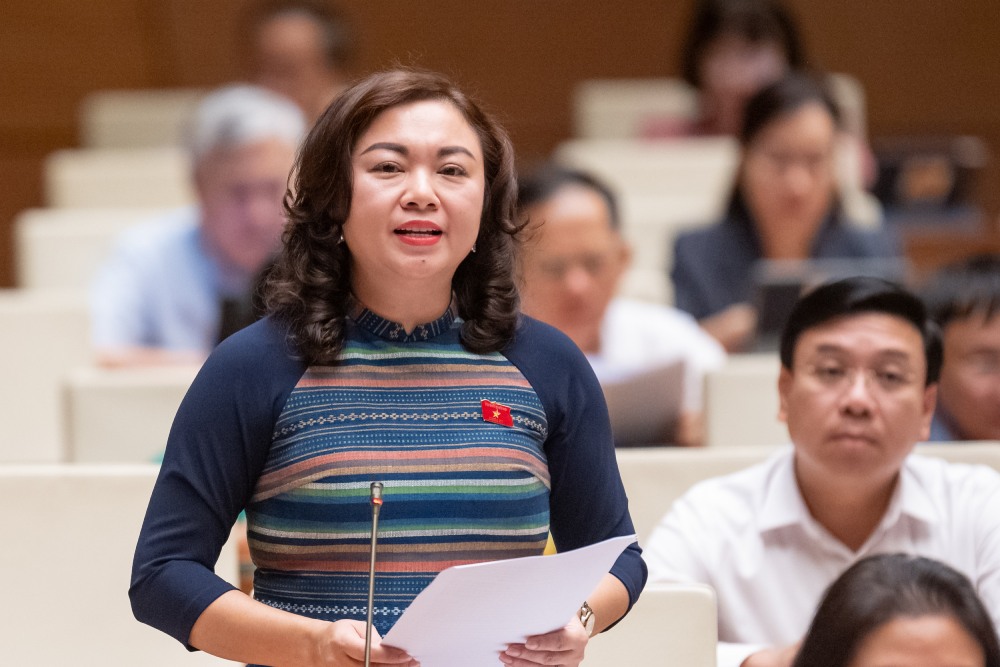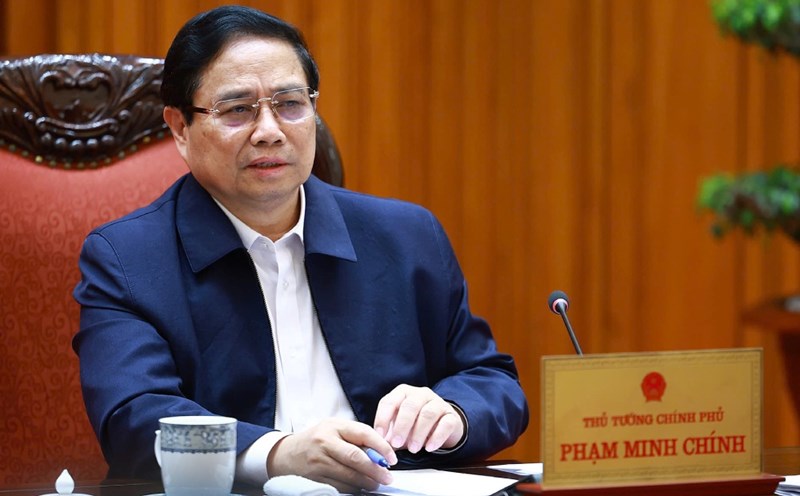On the afternoon of June 17, continuing the 9th Session, discussing the report on practicing thrift and combating waste, delegate Dang Bich Ngoc (Hoa Binh Delegation) said that in the past time, this work has been focused on, placed on par with the work of preventing and combating corruption.
The awareness of cadres, civil servants and people about practicing thrift against waste has begun to change and change positively.
In addition to the achieved results, the delegate stated that through monitoring in the locality, it is still possible that there are still investment projects that are slow, even not implemented, many works and projects are unfinished and abandoned, causing frustration among the people.
In particular, public assets and surplus headquarters are abandoned without the preservation of agencies, causing damage and degradation, so that for a long time in provinces and cities without handling them, it has created discomfort, especially surplus headquarters in large city centers.
The delegate cited data from the Ministry of Finance at the end of 2024, over 11,000 lands and houses are public assets that have not been exploited and properly handled. Not to mention, in the near future, when implementing the two-level local government and merging provinces, the number of surplus assets will continue to increase.
According to the report of the Ministry of Home Affairs, there will be about 4,226 surplus headquarters after the arrangement. From July 1, when local authorities at both levels officially come into operation, it requires more attention and comprehensive implementation of anti-corruption and waste prevention.
The delegate suggested continuing to review and perfect the institution on practicing thrift and combating waste, strictly regulating sanctions for handling waste responsibility of organizations and individuals.
Request the Ministry of Finance to advise the Government, review the overall, and digitize public assets from the central to local levels. Complete institutions to guide the implementation, classification of conversion, auction, handling of previous surplus assets and surplus public assets after the merger in the current period, and guide synchronous implementation nationwide.

Delegate Mai Van Hai (Thanh Hoa Delegation) stated that in localities, there are still many difficult and problematic projects similar to projects and land after the conclusions of inspections, examinations, and judgments in Ho Chi Minh City, Da Nang and Khanh Hoa, which have been allowed by the National Assembly to apply special policies and mechanisms to remove difficulties.
Therefore, the delegate also agreed with the Government's proposal to propose that the National Assembly allow the widespread application of similar mechanisms for handling difficulties and problems for projects and land with concluded inspections, examinations and judgments nationwide, to unlock resources for the country's development.
Delegate Trinh Xuan An (Dong Nai Delegation) said that the handling of projects should not only stop at Ho Chi Minh City, Da Nang, Khanh Hoa and needs a comprehensive solution for 2,200 projects facing difficulties and obstacles nationwide. The delegate estimated that these 2,200 projects are equivalent to more than 230 billion USD.
The delegate suggested that the Government should promptly classify and report to competent authorities and the National Assembly to have a common mechanism for resolving the issue. At the same time, it is necessary to decentralize authority, allowing localities to be as proactive as possible in handling projects that are stuck, creating momentum for socio-economic development.
The handling of projects needs to be associated with the principle that if it is beneficial to the locality, people and businesses, they should resolutely support it for implementation.











